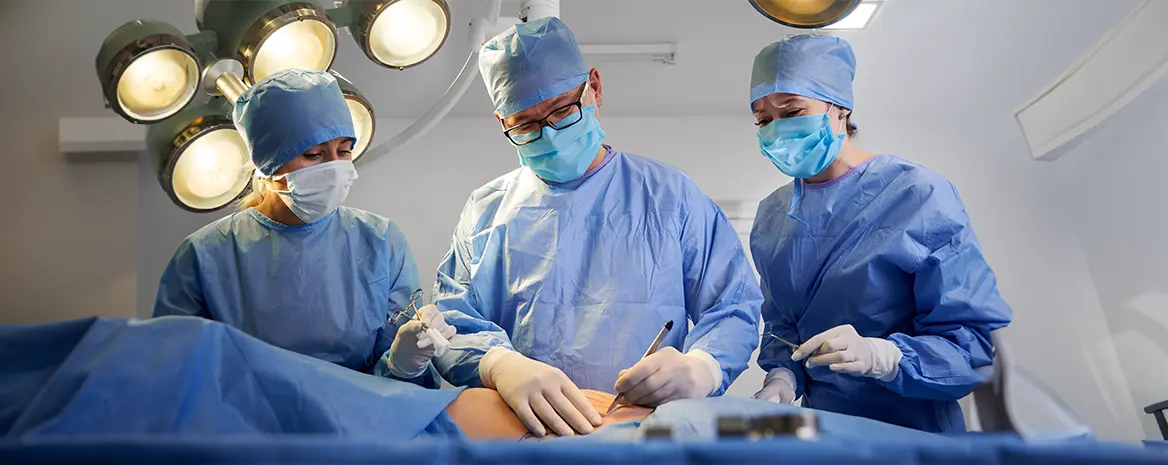Choosing the Right Doctor: Plastic Surgeon vs. Specialist

Introduction
The journey toward physical transformation through plastic or cosmetic surgery begins with a crucial decision: choosing the right physician for your needs. The debate often comes down to opting for a general plastic surgeon or a specialist. In a rapidly evolving field where techniques are advancing and patient expectations are rising, this choice becomes increasingly vital. This comprehensive guide aims to equip you with in-depth insights into both options, so you can make an educated choice aligned with your surgical goals.
What Does a General Plastic Surgeon Do?
The Scope of Practice
A general plastic surgeon is a medical professional trained to perform a multitude of reconstructive and cosmetic surgeries. These can range from facial surgeries like facelifts and rhinoplasties to body surgeries like breast augmentations, tummy tucks, and liposuction. General plastic surgeons also handle cases like burns, trauma, and congenital anomalies.
Pros
- Broad Expertise: A general plastic surgeon’s broad expertise allows them to evaluate you from a holistic aesthetic perspective. They can provide a variety of surgical solutions tailored to your overall look, rather than focusing on one specific area.
- Convenience: If you're contemplating multiple procedures, a general plastic surgeon may be capable of performing them in a single surgical session or a series of closely-timed operations.
- Accessibility: Given the more general nature of their practice, you may find that general plastic surgeons are more numerous, making it easier to secure an appointment or seek treatment in different locations.
Cons
- Jack-of-All-Trades: The adage 'jack of all trades, master of none' can sometimes apply to a general plastic surgeon. While they are knowledgeable in various surgeries, they may not offer the deeply specialized expertise that a specialist would.
Potentially Outdated Techniques: Generalists have a wide range of procedures to keep up-to-date with, which could mean they might not be as current with the latest techniques and technologies in each specific area.

Case Studies: Real-World Scenarios
To better understand the role of a general plastic surgeon, let's look at two hypothetical case studies.
Case Study 1: Sarah's Multiple Procedures
Sarah, a 45-year-old woman, wanted both a facelift and a breast lift. She opted for a general plastic surgeon who specialized in 'mommy makeovers,' a term often used for multiple procedures aimed at restoring a woman’s post-childbirth body. She felt comfortable having both surgeries performed by the same doctor, ensuring a consistent approach to her overall aesthetic goals.
Case Study 2: John's Rhinoplasty
John had always been conscious about his large nose but also had breathing issues. He chose a general plastic surgeon to perform a rhinoplasty, given that the doctor was experienced in both cosmetic and functional aspects of the surgery. By examining these case studies, we can infer that a general plastic surgeon could be a viable option for those seeking multiple procedures or a more comprehensive approach to their aesthetic and functional issues.
What Does a Specialist Do?
The Scope of Practice
Specialists in the world of plastic and cosmetic surgery often focus on a specific area, such as rhinoplasty, breast augmentation, or facial rejuvenation. This concentrated expertise allows them to delve deeply into advanced techniques, honing their skills for specialized procedures.
Pros
- Deep Expertise: A specialist’s focused practice allows for an in-depth understanding of specific surgical techniques, leading to potentially superior results in that particular area.
- Cutting-Edge Techniques: Specialists are often at the forefront of advances in their chosen domain, using the most current technologies and methodologies.
- Refinement and Precision: Due to their focused practice, specialists can offer a level of refinement and precision that generalists may not be able to match.
Cons
Limited Scope: The narrow focus may mean that the specialist is not well-equipped to address multiple aesthetic concerns simultaneously. Potential for Higher Costs: Their niche expertise can sometimes come at a higher cost.
Case Studies: Real-World Scenarios
Case Study 1: Emily's Rhinoplasty
Emily, a 30-year-old woman, was specifically looking for a rhinoplasty. She chose a specialist with decades of experience exclusively in nose surgery. The result was a natural-looking nose that harmoniously blended with her other facial features.
Case Study 2: Robert's Male Breast Reduction
Robert suffered from gynecomastia and wanted to go for male breast reduction surgery. He chose a specialist in the field who had performed hundreds of such surgeries, ensuring he was in skilled hands.

Core Considerations for Making Your Choice
Choosing between a generalist and a specialist involves multiple factors. Here's how to weigh them:
Qualifications and Certifications
Always verify that the surgeon is board-certified in plastic surgery by reputable organizations. For specialists, additional credentials in their area of expertise can be a plus.
Before and After Photos
Examine before and after photos of patients who have undergone the procedure you are considering. This can give you an idea of the surgeon's aesthetic sense and skill level. Reviews and Recommendations Patient testimonials and reviews can provide valuable insights into a surgeon's bedside manner, professionalism, and outcome consistency.
The Importance of Consultations
Whether you’re meeting virtually or in person, consultations are your opportunity to assess the surgeon's approach, understand the risks and benefits of surgery, and get a sense of your comfort level with them.
Understanding Procedure Costs
Out-of-Pocket Costs
Be aware that the quoted cost usually covers only the surgeon's fee. Additional expenses like anesthesiologist fees, facility costs, and post-operative care should also be considered.
International Considerations
For those considering medical tourism, weigh the pros and cons carefully. Lower costs can be tempting, but remember to factor in the costs of travel, potential for complications, and follow-up care.
Second Opinions: When and Why to Seek Them
It’s generally a good idea to seek a second opinion, especially for complex or high-stakes surgeries. A second opinion can either reinforce your original choice or offer a different perspective.
Conclusion
Choosing the right surgeon for your needs is a decision that requires thoughtful consideration and research. Whether you opt for a general plastic surgeon or a specialized surgeon will depend on various factors, including the type of procedure, your overall aesthetic goals, and your comfort level with the surgeon.
References
American Board of Plastic Surgery. (2021). "Board Certification: What It Means." ABPS. Link American Society of Plastic Surgeons. (2021). "2021 Plastic Surgery Statistics Report." ASPS. Link Rohrich, R. J., & Cho, M. J. (2018). "The Importance of the Consultation in Aesthetic Surgery." Journal of Plastic, Reconstructive & Aesthetic Surgery, 71(12), 1741-1744. DOI Klassen, A. F., Cano, S. J., Scott, A. M., Snell, L., & Pusic, A. L. (2012). "Measuring Patient-Reported Outcomes in Facial Aesthetic Patients: Development of the FACE-Q." Facial Plastic Surgery, 28(04), 393-400. DOI Swanson, E. (2011). "Prospective outcome study of 225 cases of breast augmentation." Plastic and Reconstructive Surgery, 127(3), 1158-1166. DOI Medical Tourism Association. (2019). "Medical Tourism Patient Survey." Link Edelstein, D. R., & Stevens, M. R. (2018). "The Ethics of Seeking a Second Opinion in Plastic Surgery." Aesthetic Surgery Journal, 38(3), 334-339. DOI

